Sarah Masih, a government employee in grade 16, resides in Khanewal City. At age twenty, her family arranged for her to get married to Thomas, a lawyer. However, after their marriage, Thomas began mistreating Sarah, alleging that he was compelled into the marriage by his parents.
During Sarah's pregnancy, Thomas presented her with an ultimatum: if she gave birth to a son, he would stay; however, if it were a daughter, he would leave. Sarah delivered a daughter, whom Thomas refused to acknowledge. Instead, he accused Sarah of misconduct and initiated divorce proceedings.
When the case went to court, Thomas did not pursue it, but Sarah had to attend all the hearings. The court directed that the call to attend be publicised in local newspapers. Thomas remained absent. Eventually, the civil court issued an ex-parte decision that declared Sarah’s divorce valid.
Sarah had to face many problems after her divorce.
When her daughter was old enough to attend school, she was asked to produce her B-form. Since her former husband had not gotten the birth of their daughter registered, she could not do so. Instead, she enrolled her daughter in a private school. The problem persisted as the years went on. Her daughter eventually could not register for her matriculation exams because she did not have her B-form.
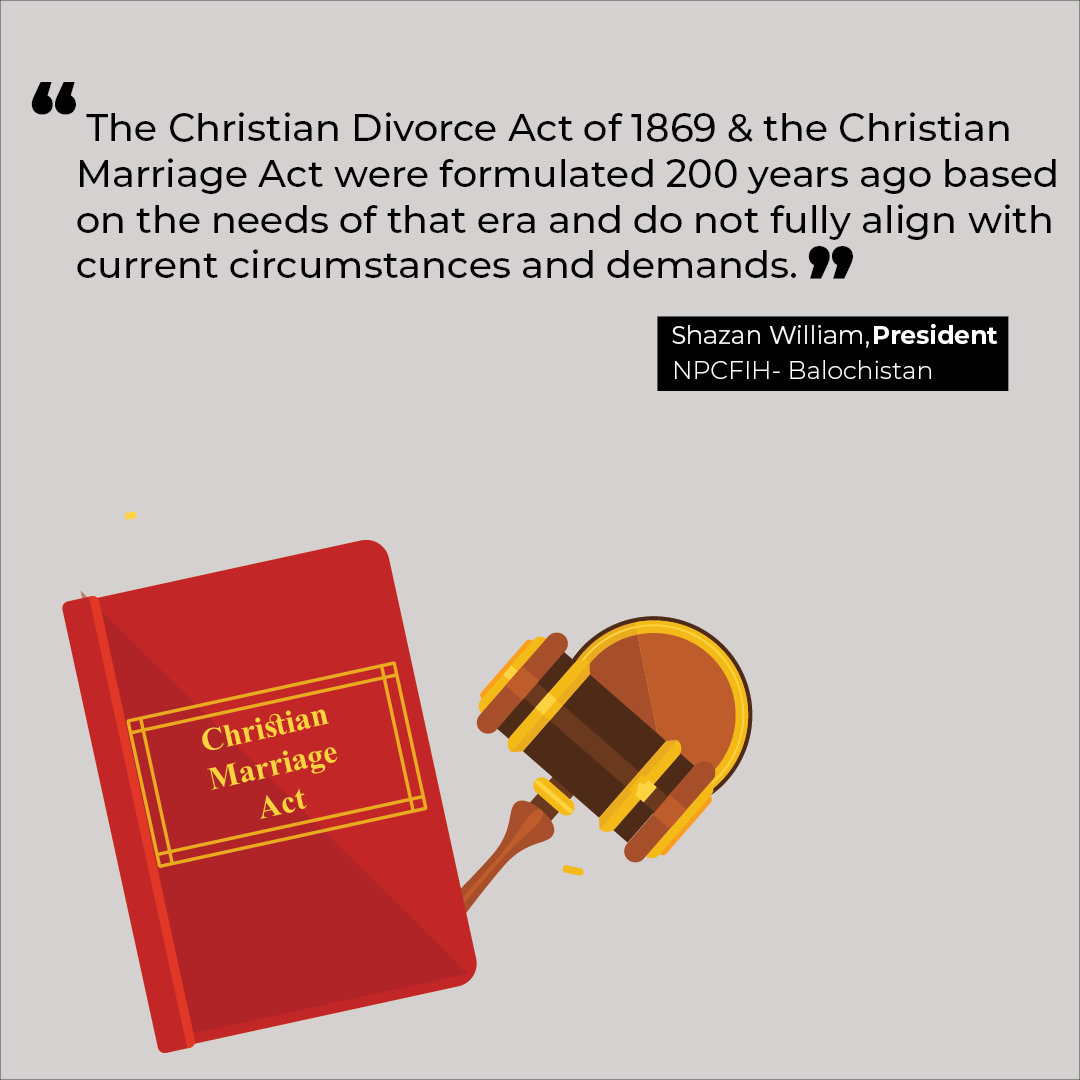
Sarah said her daughter also faced this problem because her divorce was not registered. When she tried to get her divorce registered with the Union Council, she was informed that the body only registered divorces issued through the family courts. As per the Christian Divorce Act 1869, all divorce cases are tried under the civil court, not the family court, which is why these cases go unregistered on a UC level.
Divorce cases are tried in family courts under Muslim jurisdiction. Family courts are bound by law to offer recourse within a set duration of six months. On the other hand, civil courts are bound by no such restrictions, so cases lodged there drag on indefinitely. Only divorces served by family courts are registered per the Local Government Ordinance.
Sarah is 44 years old now. Her problems are far from resolved; in fact, they are now casting a shadow over her daughter's future.
Family laws governing the Christian community were formulated during the British Raj. “The British government passed the Christian Divorce Act in 1869,” says Shezan William, the president of the Balochistan chapter of the National Peace Committee for Interfaith Harmony. “The Christian Marriage Act was passed three years after that in 1872. These archaic laws were a product of their time and a manifestation of the priorities of British Rule. Now, they are obsolete,” he says.
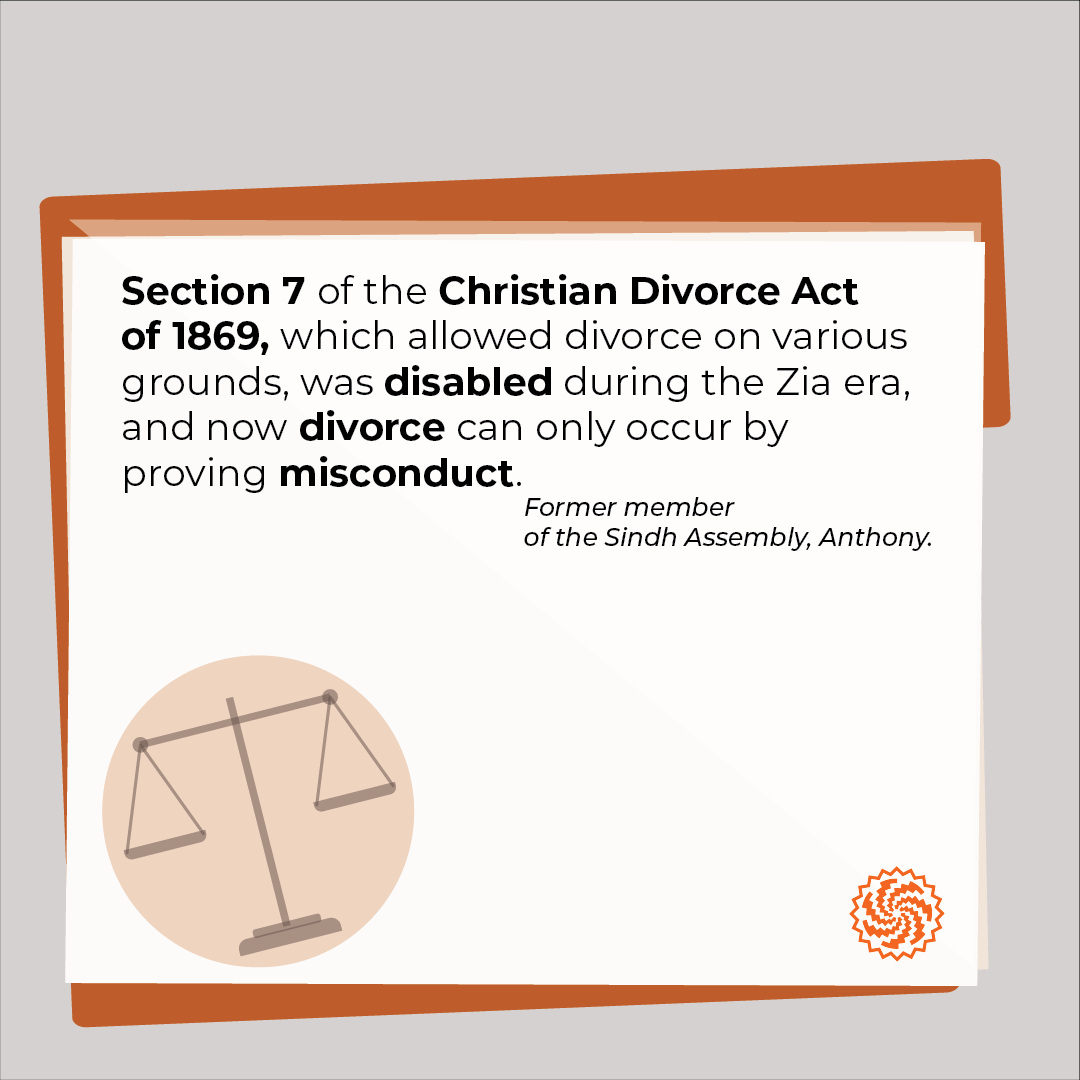
“These laws require that at least one person, out of the couple about to be married, be Christian. They also set the minimum age of marriage of girls at thirteen even though, after the passage of the Child Marriage Restraint Act, it was set at 18 in Sindh and 16 in the rest of the country,” notes William.
“Christian family laws contradict the laws of the state. It is also written in the British law that Christians cannot marry after sunset.” This law has outlived its function. Shezan says, “There was no electricity back then, and people dispersed earlier, but these days, almost all weddings occur in the evenings. If this law is to be factored in, most of the weddings that take place these days would be illegal.” He adds that there is a dire need to bring these laws up to date through amendments.
Maryam Masih hails from Multan. She was married to Albert when she was fifteen. Albert was not only addicted to drugs but also abusive towards her. Two years into their marriage, Maryam gave birth to a daughter. This changed nothing and Albert continued to be violent towards her. Exhausted, she decided to leave him for good. She shared her ordeal with her father, who tabled the issue in front of elders, relatives, and extended family. It was mutually decided that Albert would divorce Maryam, which he did shortly afterwards.
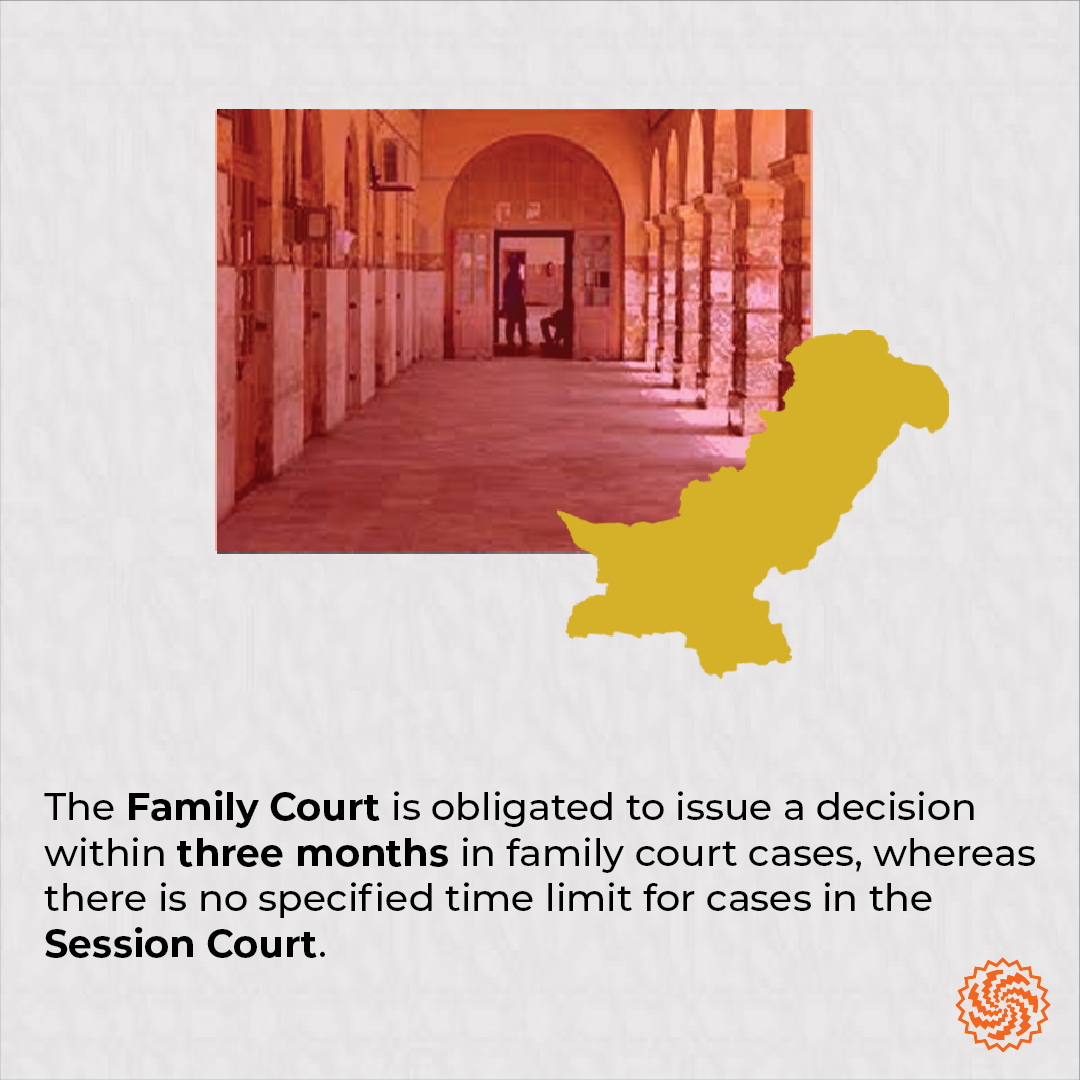
Maryam decided to move on. A year on, she got married to someone else. Albert also married another woman but could not have a child. Soon, Albert began denying that he had ever divorced Maryam. He also initiated a custody battle over their only daughter.
Maryam has been severely disturbed because of this. Maryam is distraught because a divorce written on stamp paper has no legal status. “I want to protect my daughter. I want to fight out [my claim] over her in the court, but I cannot afford to. Court cases drag on indefinitely over here,” she complains.
“The prime affectees of these obsolete laws are women who face a myriad of social issues because of them,” says Shehzad Francis, chief executive of Baithek, a nongovernmental organisation and a member of the National Lobbying Delegation for Minority Rights. This group has been rallying for amendments to family laws for over twelve years. “Some are even compelled to change their religion,” he adds.
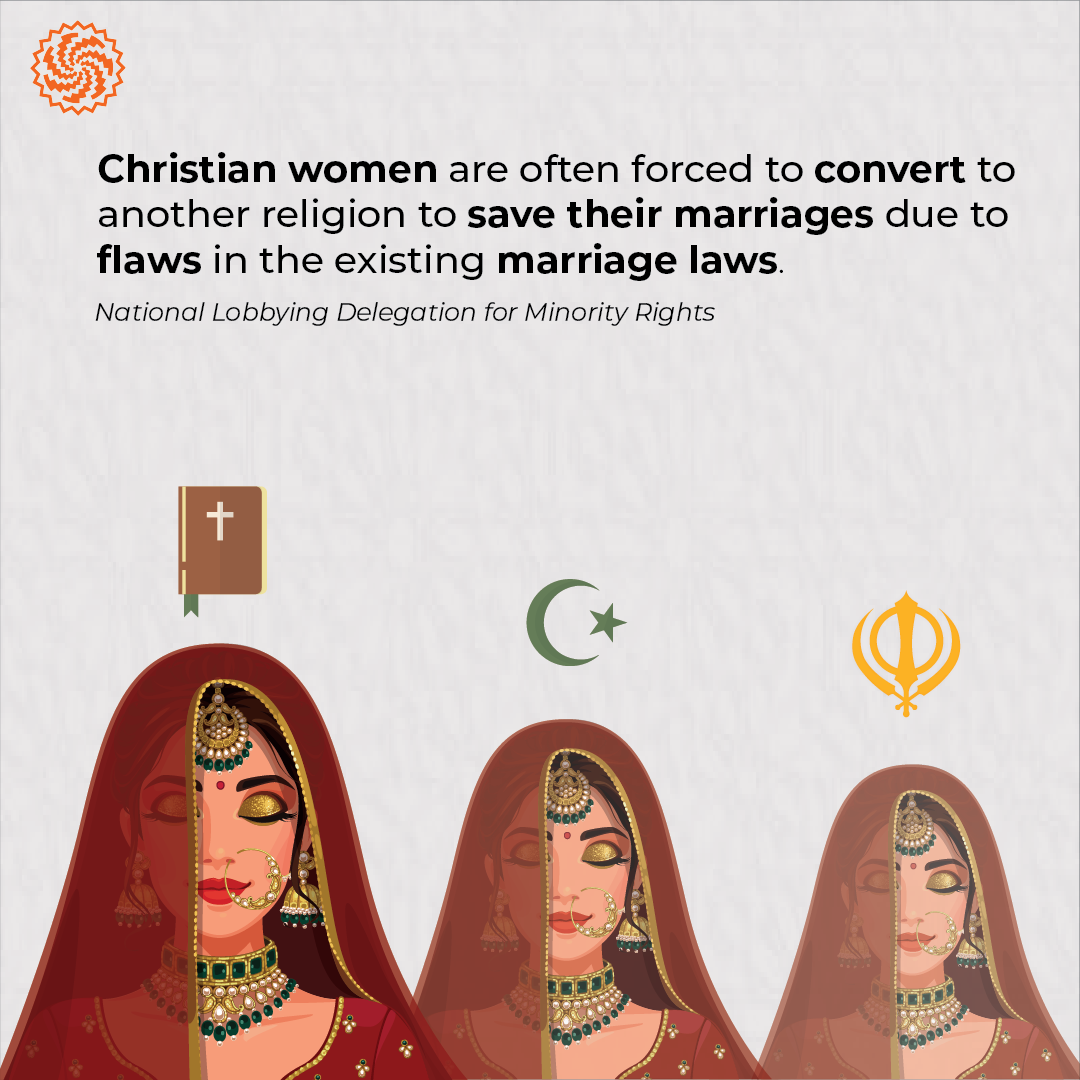
“Most countries around the world have reformed their family laws, but in Pakistan, we’re relying on laws over 150 years old,” says Francis. “There is no concept of divorce among Catholic Christians.” He further states that such an incident has happened in his family. A female relative of mine got married to a man who, upon leaving the country, married a second time but never divorced her. He moved on, but she’s still stuck. We even contacted the church, but there was no legal recourse. We demand legislation that offers protection to women,” he says.
Anthony Naveed, a former member of the Sindh Assembly, said that the Christian Divorce Act 1869 has given various conditions for separation.
Section 7 of this Act initially allowed couples to part ways for eight reasons, including conversion (out of religion), second marriage, rape, misconduct, domestic violence, bestiality, and prolonged absence. However, this section was nullified under the Federal Laws Ordinance of 1981, which was introduced during the Zia era.
Also Read
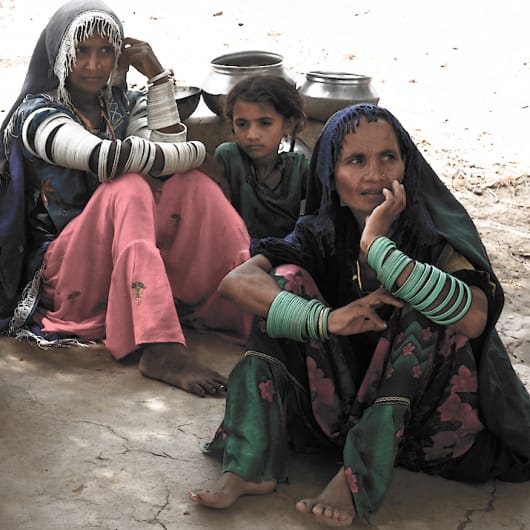
Sindh Hindu Marriage Act: What is hindering its implementation?
“Since this section was scrapped, it left behind only misconduct as a valid ground for a divorce meaning, a divorce is simply not possible without proving misconduct. Accusing a woman of misconduct can ruin her life” he says.
According to Naveed, Section 7 was later reinstated by Justice Mansoor Ali Shah in the Ameen Masih case because Masih refused to accuse his wife of misconduct. “All the prominent bishops have approved a bill proposing changes to family laws of the country, but for the past six years, it has only been shuttling back and forth between the law and human rights ministries,” says Naveed.
“As far as I know, this bill is with the federal law secretary. We demand that this bill be passed as soon as possible so the Christian community, particularly women, can be supported,” adds Naveed.
Samira Shafiq, a member of the Punjab Bar and High Court advocate, said that she receives many cases of divorce of Christian girls, which remain unresolved for years. Lawyers often advise girls or boys to convert to divorce because adultery is extremely difficult to prove.
“To prove misconduct, one needs witnesses,” she says, adding that updated family laws are the need of the hour.
Published on 7 Dec 2023




















